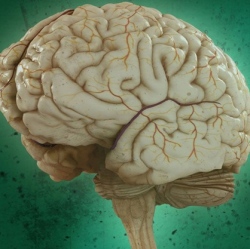
Three British researchers have won a prize worth one million euros, awarded each year for an "outstanding contribution to European neuroscience". Tim Bliss, Graham Collingridge and Richard Morris revealed how strengthened connections between brain cells can store our memories.
This is the first time the Brain Prize has been won by an entirely UK team. Speaking to journalists at a media conference, Prof Morris explained it was the "chemistry of memory" that he and his colleagues had managed to illuminate.
"Before this team got going, we had some idea about particular areas of the brain that might be involved in memory… but what we didn’t have was any real understanding of how it worked," explained the professor, who works at the University of Edinburgh.
The "team" of three winners never worked together in the same laboratory, but they have collaborated over the years.
"Memories change the brain – the brain is plastic," said Prof Bliss, who worked for many years at the National Institute of Medical Research in London and is now affiliated with the Francis Crick Institute.
The changes occur at the junctions between nerve cells – synapses – and were described in a pioneering study by Bliss and a Norwegian colleague, Terje Lomo, in the 1970s.
The Brain Prize is awarded by the Grete Lundbeck European Brain Research Foundation, based in Copenhagen; a committee of eight neuroscientists makes the decision.
Billed as "the world’s most valuable prize for brain research", its one million-euro value – to be shared by the three winners – marginally exceeds that of the biennial US $1m neuroscience prize awarded by the Kavli Foundation.
